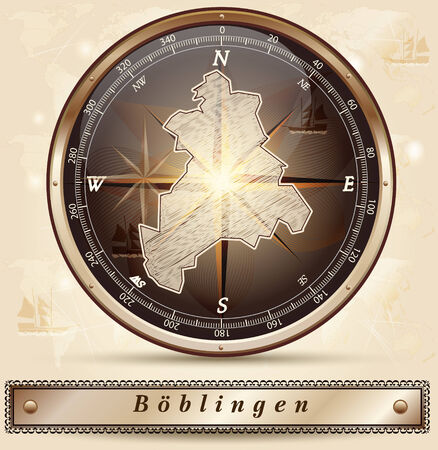Astrology in the British Cultural Imagination
Astrology has woven itself into the very fabric of British cultural life, its influence stretching from medieval courts to contemporary coffee tables. The UK’s fascination with the stars is not merely a fleeting trend but a historical undercurrent that has shaped language, literature, and everyday conversation. From Shakespeare’s musings on “the fault in our stars” to today’s witty horoscopes in weekend papers, astrology has long provided Britons with a lens for interpreting personality quirks and twists of fate. Even phrases like “It’s written in the stars” or “Mercury’s playing up again” have slipped seamlessly into daily parlance. This enduring allure can be traced back to times when planetary movements were considered vital to understanding one’s destiny—guiding monarchs, inspiring poets, and offering ordinary people reassurance in uncertain times. In modern Britain, astrology still holds its ground as both a source of entertainment and a subtle guide for those seeking meaning amidst the unpredictable turns of life. With every new generation, the planets continue to cast their symbolic light over British hopes, fears, and aspirations.
2. The Sun, The Moon, and the Stars: Key Celestial Players
When delving into British astrology, it is essential to appreciate the unique way Britons interpret the symbolism of the major planets and celestial bodies. While the Sun and Moon are universal symbols across many cultures, in Britain their meanings often intertwine with national myths, folklore, and a particularly British sense of destiny. Beyond these luminaries, traditional astrology in the UK also considers Mercury, Venus, Mars, Jupiter, and Saturn as influential players in shaping personalities and life paths. Let’s explore their distinct characteristics through a British lens.
| Celestial Body | British Symbolism | Influence on Personality & Destiny |
|---|---|---|
| The Sun | The heart of self-expression; linked with regal heritage and leadership (think King Arthur or Queen Elizabeth I). | Encourages confidence, ambition, and a “stiff upper lip” approach to challenges. |
| The Moon | Deeply connected to intuition and emotional tides; echoes ancient Celtic lunar traditions. | Nurtures creativity and sensitivity—often seen in British poets and artists. |
| Mercury | The messenger; associated with wit and eloquence—traits celebrated from Shakespeare to modern-day parliamentarians. | Fosters analytical thinking and adaptability. |
| Venus | Symbol of love and aesthetics; often related to the classic British appreciation for art, romance, and gardens. | Enhances charm and sociability—think Jane Austen characters navigating society. |
| Mars | The force behind courage and conflict; reminiscent of the British warrior spirit from Beowulf to Churchill. | Drives assertiveness and strategic action. |
| Jupiter | The planet of fortune; tied to expansion and adventure—mirrored in Britain’s exploratory history. | Inspires optimism, generosity, and a philosophical outlook. |
| Saturn | The wise teacher; aligned with resilience through adversity—a nod to “Keep Calm and Carry On.” | Cultivates discipline and long-term planning. |
This planetary tapestry forms the foundation for how many in Britain understand personality traits and life’s unfolding journey. The stars themselves serve as reminders of fate’s mysterious hand—a theme woven through everything from Shakespearean drama to contemporary horoscopes in British newspapers. Thus, British astrology is not just about prediction but about recognising how celestial influences reflect the very fabric of local character, resilience, and dreams.

3. British Personality Archetypes and Planetary Influence
When exploring the distinctive qualities woven into the British psyche, certain archetypes stand out—traits such as the famed stiff upper lip, a penchant for dry wit, and an enduring sense of stoicism. These characteristics, while shaped by history and social context, are also illuminated through the lens of British astrology. Astrologers in the UK have long noted how planetary forces can subtly shape not only individual destinies but also broader cultural personas.
The Stiff Upper Lip: Saturn’s Steadfast Hand
The concept of the “stiff upper lip”—the ability to remain composed and unflappable in the face of adversity—is often linked to Saturns influence in British charts. In astrological terms, Saturn governs discipline, restraint, and endurance. British astrologers frequently observe that prominent Saturn placements correspond with an individual’s ability to maintain composure and dignity under pressure, mirroring a wider societal expectation embedded in British culture.
Dry Wit and Mercurial Mischief
No exploration of British personality would be complete without acknowledging its signature humour: wry, understated, and razor-sharp. Mercury—the planet associated with intellect, communication, and clever repartee—is seen as a guiding force behind this national trait. Those with strong Mercury aspects in their natal chart often display a natural affinity for irony and subtle humour, hallmarks of both classic British comedy and everyday conversation.
Jupiter’s Generosity Amid Reserved Exteriors
Beneath the famously reserved exterior often attributed to Britons lies a current of warmth and generosity. Jupiter, known as the planet of expansion and benevolence, is believed by many British astrologers to underpin acts of charity, fair play, and community spirit. While these qualities may not always be openly displayed, they form a quiet backbone to the collective identity—manifesting in everything from local village fêtes to global humanitarian efforts led from Britain.
Through blending these traditional traits with planetary archetypes, it becomes evident that astrology offers an intriguing framework for understanding the subtle interplay between cosmic patterns and uniquely British ways of being. The planets serve not just as distant celestial bodies but as dynamic influences shaping personalities, destinies, and even national character.
4. Destinies Written in the Stars: Fate, Fortune, and the British Perspective
When it comes to astrology, the British relationship with fate and destiny is as nuanced as the weather – a blend of stoic acceptance and gentle optimism. The phrase “what’s written in the stars” is often uttered with a wry smile, suggesting both an acknowledgement of cosmic influence and an underlying belief in personal agency. The British, shaped by centuries of philosophical debate and a cultural tradition of resilience, tend to approach planetary influence with a practical mindset. There’s an appreciation for the mysterious and the magical, but it is balanced by a distinct sense of pragmatism.
The British attitude towards destiny could be described as a dance between accepting what cannot be changed (stoicism) and believing that fortune can still turn in one’s favour (optimism). This duality is evident in how many consult astrological charts: not as unchangeable decrees, but as guides offering insight into potential paths. The concept of fate is rarely fatalistic; instead, it is seen as an opportunity to prepare, adapt, and even challenge the hand dealt by the planets.
British Stoicism |
British Optimism |
|---|---|
“Keep calm and carry on” approach to setbacks.
|
Belief that fortune favours the brave.
|
This perspective shapes how astrology is woven into British life. Horoscope columns in daily papers are read over a cup of tea – not as gospel, but as conversation starters or sources of gentle encouragement. Even when planetary alignments suggest turbulent times, there’s a prevailing sense that “this too shall pass.” This ability to hold space for both caution and hope defines the British astrological outlook: the planets may set the stage, but each individual remains an active participant in their own story. In essence, while destinies may be written in the stars, it is the uniquely British combination of stoicism and optimism that colours how those destinies are interpreted and lived.
5. Planetary Influence in Modern British Life
Astrology, with its planetary frameworks, weaves quietly yet persistently through the tapestry of contemporary British society. From bustling London boroughs to the rolling hills of rural Wales, Britons maintain a curious relationship with the stars above. For many, planetary astrology offers a whimsical break from the grey drudgery of daily life; for others, it’s a genuine lens through which personalities and destinies are interpreted.
The Ubiquity of Horoscopes
Perhaps nowhere is this fascination more evident than in the prevalence of horoscopes. The British press—whether you’re flicking through a tabloid on the Tube or scanning a glossy magazine at your local newsagent—almost always features astrological columns. Writers like Russell Grant and Mystic Meg have become household names, their daily readings providing comfort, entertainment, and sometimes uncanny insights that spark conversations across all social strata. Whether city dwellers in Manchester or seaside residents in Brighton, many Brits admit to at least a passing glance at their star sign forecasts.
Public Figures and Astrological References
The intrigue extends beyond private musings; public figures often reference their astrological identities in interviews or social media banter. Footballers joke about Mercury retrograde after a string of missed goals; actors might credit their Leo boldness for landing a coveted West End role. Even politicians occasionally allude to cosmic timing when discussing big decisions—a subtle nod to a culture where planetary influence is both ridiculed and revered.
Regional Variations and Cultural Nuances
Across Britain’s diverse regions, engagement with astrology reflects local sensibilities. In cosmopolitan hubs like London, astrology merges with global trends—think birth chart workshops in Shoreditch or boutique shops selling bespoke zodiac jewellery. In contrast, communities in Cornwall or the Welsh valleys may blend planetary beliefs with folklore, drawing connections between ancient Druidic traditions and modern astrological practices.
Ultimately, while scepticism remains—often voiced with classic British humour—planetary astrology endures as both cultural artefact and personal tool. Whether read for fun or followed in earnest, the planets continue to play an intriguing part in shaping British personalities and destinies.
6. Astrological Language: From Pub Banter to Palace Decrees
Astrology has long threaded its way through the linguistic and cultural tapestry of Britain, popping up in the most unexpected places—from the convivial banter of a local pub to the more formal declarations echoed in Westminster’s hallowed halls. The British have a particular knack for weaving planetary references into everyday speech, often with a wry smile or arched eyebrow that betrays both their scepticism and their enduring fascination with the stars.
Planetary Idioms: Everyday Celestial Wit
Take, for instance, expressions such as “it must be Mercury retrograde,” which one might overhear when technology fails or plans go awry. While originally an astrological explanation for chaos, it now serves as a tongue-in-cheek shorthand for life’s little misfortunes, whether you’re in a Shoreditch start-up or a Sheffield café. To “feel over the moon” or to describe someone as “moonstruck” are other telltale signs of celestial language permeating daily conversation, revealing how planetary influence is part of the British vernacular—whether earnestly believed or used with playful irony.
Star Signs in Pop Culture and Media
Astrology’s reach extends deep into British pop culture. From horoscopes printed in tabloid newspapers like The Sun and Metro to plotlines in soap operas such as EastEnders, star sign references are everywhere. Celebrities’ birth charts are dissected on morning television and social media, while witty memes about Scorpios being vengeful or Geminis being fickle circulate widely. This playful engagement reflects a collective curiosity—Britons may scoff at astrology’s predictive powers, yet they rarely resist peeking at their own weekly forecast.
Political Rhetoric: Stars Behind the Scenes
Perhaps surprisingly, astrological language occasionally seeps into political discourse as well. Journalists might quip that a Prime Minister’s fortunes are “in the ascendant,” or speculate on a politician’s “star-crossed” career. Even palace intrigue is not immune; royal commentators have been known to muse on planetary alignments before significant events or announcements. Such references serve both as rhetorical flourish and subtle commentary on fate versus agency—a nod to Britain’s ongoing dance between rationalism and superstition.
This linguistic interplay between scepticism and fascination is uniquely British: astrology is rarely taken wholly seriously, yet neither is it entirely dismissed. Whether shared over a pint or debated in Parliament, planetary allusions provide rich soil for humour, reflection, and communal connection—proof that even in an age of reason, the stars continue to cast their spell across the British psyche.
7. The Evolving Role of Astrology in the UK
Astrology’s journey across British society is a testament to its resilience and adaptability, even as it faces the sharp scrutiny of modern scepticism. While empirical science and rationalism have become the cornerstones of public discourse, astrology has not faded into obscurity; instead, it has transformed, absorbing multicultural influences and adapting to new-age sensibilities. Today, British astrology is a tapestry woven from threads of tradition and innovation—whether it’s the persistent popularity of horoscopes in major newspapers, or the rise of digital birth chart readings tailored for Gen Z. Multiculturalism has infused the astrological scene with Eastern philosophies, planetary deities from far-flung cultures, and fresh interpretations that expand beyond the Western zodiac. Meanwhile, British practitioners are engaging with astrology not just as a predictive tool but as a form of self-reflection and personal growth—a shift echoed in contemporary wellness culture. Of course, this revival is met with both fascination and polite British cynicism; many approach astrology with a characteristic tongue-in-cheek attitude, seeing it as entertainment or conversation starter rather than cosmic gospel. Yet, beneath this playful surface lies an enduring curiosity about how planetary patterns might still offer meaning in a rapidly changing world. The evolving role of astrology in the UK thus mirrors broader societal changes: it negotiates between heritage and progressiveness, individual exploration and collective belonging, all under the ever-watchful gaze of planets that continue to intrigue.


